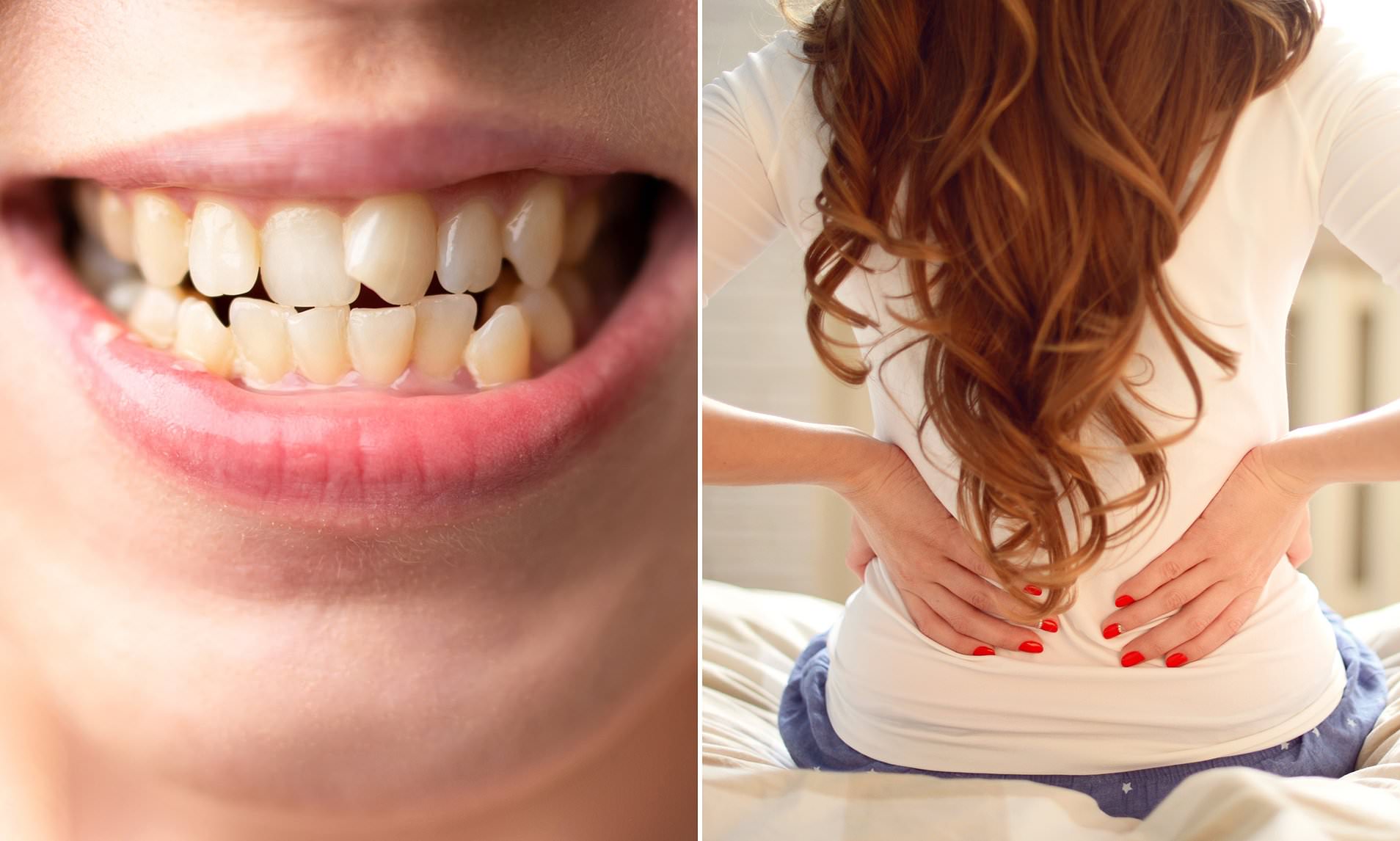
THOSE WHO LOSE TEETH FROM POOR ORAL HYGIENE MORE LIKELY HAVE BACK PAIN
- An international team of researchers gathered information on 8,662 Americans
Losing a tooth is nothing to smile about – but scientists have now found it can also be a pain in the backside.
People who lose their teeth from poor oral hygiene are more likely to suffer chronic pain in the lower back and buttocks, according to new research.
And the more teeth lost, the worse the pain.
Quite why the backside should be affected is unclear, but one theory is that the gum disease periodontitis may trigger an immune response that causes painful inflammation elsewhere.
Previous research has shown that people with gum disease have two to three times the risk of having a heart attack or stroke, but the new study is the first to investigate links between chronic pain and tooth loss.
An international team of researchers gathered information on 8,662 American men and women, counting their teeth and recording existing health conditions as well as lifestyle data such as dietary habits and smoking as well as recording their chronic pain levels.
'The results suggest a clinically significant link between chronic pain and tooth loss,' said the study's co-author, Dr Kevin Sheng-Kai Ma from the University of Pennsylvania.
'We found that edentulous [toothless] patients had significantly higher odds of experiencing chronic pain in their lower extremities or buttocks for more than three months compared to those with more than 20 teeth.'
The study, published in the academic Journal Of Pain, also found that people who suffered chronic pain had an average of 22.2 teeth, while the pain-free averaged 24.5.
Chronic pain was experienced in a number of different sites in the body, including the back and legs. People with no teeth were 50 per cent more likely to have chronic pain in the buttocks and almost 80 per cent more likely to have it in their legs and feet, independent of other health and lifestyle factors.
Pain is classed as chronic if it lasts longer than three months despite treatment.
Read more 2024-05-04T23:40:00Z dg43tfdfdgfd